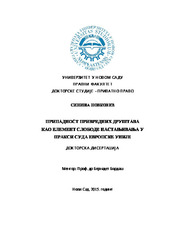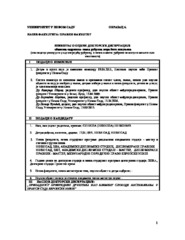Припадност привредних друштава као елемент слободе настањивања у пракси Суда Европске уније
Pripadnost privrednih društava kao element slobode nastanjivanja u praksi Suda Evropske unije
| dc.contributor.advisor | Bordaš, Bernadet | |
| dc.contributor.other | Šaula, Valerija | |
| dc.contributor.other | Bordaš, Bernadet | |
| dc.contributor.other | Đundić, Petar | |
| dc.creator | Новковић, Синиша | |
| dc.date.accessioned | 2016-04-16T15:00:22Z | |
| dc.date.available | 2016-04-16T15:00:22Z | |
| dc.date.available | 2020-07-03T13:36:32Z | |
| dc.date.issued | 2015-10-31 | |
| dc.identifier.uri | https://nardus.mpn.gov.rs/handle/123456789/5144 | |
| dc.identifier.uri | http://www.cris.uns.ac.rs/DownloadFileServlet/Disertacija143687175774067.pdf?controlNumber=(BISIS)95423&fileName=143687175774067.pdf&id=4034&source=NaRDuS&language=sr | sr |
| dc.identifier.uri | http://www.cris.uns.ac.rs/record.jsf?recordId=95423&source=NaRDuS&language=sr | sr |
| dc.identifier.uri | http://www.cris.uns.ac.rs/DownloadFileServlet/IzvestajKomisije143687143112831.pdf?controlNumber=(BISIS)95423&fileName=143687143112831.pdf&id=4033&source=NaRDuS&language=sr | sr |
| dc.description.abstract | Постојеће законодавство ЕУ не пружа довољан правни основ за слободно кретање привредних друштава међу државама чланицама ЕУ из разлога недовољне легислативне активности органа ЕУ. Одредбе о слободи настањивања из Уговора о функционисању Европске уније не дају јасну слику о томе коју теорију о припадности привредних друштава треба примењивати како би привредна друштва несметано уживала слободу настањивања – теорију оснивања, теорију стварног седишта или, пак, неку трећу. Вишегодишњи неуспеси органа ЕУ да правно уреде питање припадности привредних друштава дали су слободу Суду ЕУ да буде веома активан у креирању судске праксе поводом припадности привредних друштава, а путем тумачења слободе настањивања. Видна је разлика између либералистичког приступа Суда са једне стране и протекционизма ког поједине државе чланице ЕУ потенцирају у својим националним правима, као и кроз органе ЕУ. Пракса Суда ЕУ показала је да се разлике између теорија о припадности привредних друштава могу премостити, а да при томе не дође до напуштања једне од њих. Тако би се из теорије оснивања прихватило начело аутономије воље оснивача, док би се из теорије стварног седишта прихватио став да државе чланице имају право да интервенишу у одређеним питањима из домена права привредних друштава, када је то потребно ради заштите одређеног општег интереса. Разлике између теорије оснивања и теорије стварног седишта суштински представљају разлике у поимањима обима државног суверенитета од стране различитих држава чланица ЕУ. Тако се оне државе које желе да стимулишу развој привреде привлачењем страних инвеститора одлучују за прихватање теорије оснивања, док са друге стране теорију стварног седишта прихватају оне државе које желе да остваре што је могуће већу контролу привредних активности које се врше на њеној територији. Иако су и Суд ЕУ и правна теорија покушавали да реше питање сукоба између две преовлађујуће теорије о припадности привредних друштава – теорије оснивања и теорије стварног седишта – то се до данашњег дана није догодило, превасходно јер су наведене теорије засноване на двема супротстављеним филозофијама. Филозофија којом се води теорија оснивања потиче из држава које имају традиционално јаку међународну трговину и које, стога, проблему прилазе на један отворенији и флексибилнији начин, стављајући у први план пре свега слободу трговине и принцип сигурности у привредним односима. Теорија стварног седишта проблему прилази сагледавајући стварну везу између одређеног привредног друштва и одређене државе. Из скоријих пресуда Суда ЕУ може се закључити да право ЕУ све више иде ка прихватању теорије оснивања као преовлађујуће теорије о припадности привредних друштава, која, међутим, не може бити примењивана без корективних мера којима би се штитила права трећих лица. Оно што би требало да буде повезујући чинилац и за теорију оснивања и за теорију стварног седишта јесте управо то што је њихов коначан циљ исти, а то је што мање ограничење слободе настањивања привредних друштава. | sr |
| dc.description.abstract | Postojeće zakonodavstvo EU ne pruža dovoljan pravni osnov za slobodno kretanje privrednih društava među državama članicama EU iz razloga nedovoljne legislativne aktivnosti organa EU. Odredbe o slobodi nastanjivanja iz Ugovora o funkcionisanju Evropske unije ne daju jasnu sliku o tome koju teoriju o pripadnosti privrednih društava treba primenjivati kako bi privredna društva nesmetano uživala slobodu nastanjivanja – teoriju osnivanja, teoriju stvarnog sedišta ili, pak, neku treću. Višegodišnji neuspesi organa EU da pravno urede pitanje pripadnosti privrednih društava dali su slobodu Sudu EU da bude veoma aktivan u kreiranju sudske prakse povodom pripadnosti privrednih društava, a putem tumačenja slobode nastanjivanja. Vidna je razlika između liberalističkog pristupa Suda sa jedne strane i protekcionizma kog pojedine države članice EU potenciraju u svojim nacionalnim pravima, kao i kroz organe EU. Praksa Suda EU pokazala je da se razlike između teorija o pripadnosti privrednih društava mogu premostiti, a da pri tome ne dođe do napuštanja jedne od njih. Tako bi se iz teorije osnivanja prihvatilo načelo autonomije volje osnivača, dok bi se iz teorije stvarnog sedišta prihvatio stav da države članice imaju pravo da intervenišu u određenim pitanjima iz domena prava privrednih društava, kada je to potrebno radi zaštite određenog opšteg interesa. Razlike između teorije osnivanja i teorije stvarnog sedišta suštinski predstavljaju razlike u poimanjima obima državnog suvereniteta od strane različitih država članica EU. Tako se one države koje žele da stimulišu razvoj privrede privlačenjem stranih investitora odlučuju za prihvatanje teorije osnivanja, dok sa druge strane teoriju stvarnog sedišta prihvataju one države koje žele da ostvare što je moguće veću kontrolu privrednih aktivnosti koje se vrše na njenoj teritoriji. Iako su i Sud EU i pravna teorija pokušavali da reše pitanje sukoba između dve preovlađujuće teorije o pripadnosti privrednih društava – teorije osnivanja i teorije stvarnog sedišta – to se do današnjeg dana nije dogodilo, prevashodno jer su navedene teorije zasnovane na dvema suprotstavljenim filozofijama. Filozofija kojom se vodi teorija osnivanja potiče iz država koje imaju tradicionalno jaku međunarodnu trgovinu i koje, stoga, problemu prilaze na jedan otvoreniji i fleksibilniji način, stavljajući u prvi plan pre svega slobodu trgovine i princip sigurnosti u privrednim odnosima. Teorija stvarnog sedišta problemu prilazi sagledavajući stvarnu vezu između određenog privrednog društva i određene države. Iz skorijih presuda Suda EU može se zaključiti da pravo EU sve više ide ka prihvatanju teorije osnivanja kao preovlađujuće teorije o pripadnosti privrednih društava, koja, međutim, ne može biti primenjivana bez korektivnih mera kojima bi se štitila prava trećih lica. Ono što bi trebalo da bude povezujući činilac i za teoriju osnivanja i za teoriju stvarnog sedišta jeste upravo to što je njihov konačan cilj isti, a to je što manje ograničenje slobode nastanjivanja privrednih društava. | sr |
| dc.description.abstract | The current EU legislation does not provide a sufficient legal basis for the free movement of companies within the member states of the EU, due to insufficient legislative activities of the EU institutions. The provisions on the freedom of establishment contained in the Treaty on the Functioning of the European Union do not show a clear picture on which of the theories on the nationality of companies ought to be applied in order for companies to enjoy the freedom of establishment without a hindrance – the incorporation theory, the real seat theory or some other theory. Perennial failures of the EU authorities to put in order the legislation pertaining to the question of the nationality of companies have resulted in wide discretion of the Court of Justice of the European Union to actively create the case-law in regards to the nationality of companies, by means of interpretation of the freedom of establishment. The difference between the liberal approach adopted by the Court, on one side, and the protectionism that some member states are so prone to in their national laws and which they eagerly advocate via the institutions of the EU, on the other side, is blatant. The case-law of the Court of Justice of the EU has shown that the differences between theories for establishing the nationality of companies could be overcome, without abandoning one or the other. This could be done by accepting the principle of autonomy of will, characteristic for the incorporation theory, whereas the stance that member states are entitled to intervene in certain matters of company law, if necessitated by the protection of certain public interests, could be harvested from the real seat theory. The distinction between these two theories basically stems from divergent conceptions of the scope of state sovereignty advanced by different member states of the EU. This means that states keen to stimulate industry growth opt for the incorporation theory, while on the other hand, the real seat theory is adopted by those states avid to control, to the fullest possible extent, the economic activities performed on their territory. Although both the Court of Justice of the EU and the doctrine have attempted to resolve the contention between the two dominant theories on the nationality of companies – the incorporation theory and the real seat theory – no solution has hitherto been found, mainly because the two theories are strongly based on two opposing philosophical viewpoints. The mindset that navigates the incorporation theory is derived from states with traditionally substantial international trade and which states, accordingly, approach the pertinent problem in a more open and flexible manner, putting first and foremost the freedom of trade and the principle of certainty in economic relations. The real seat theory, however, approaches the issue by contemplating the actual connection between a company and a certain state. It can be deduced from recent judgments of the Court of Justice of the European Union that the law of the European Union is more and more inclined to adopt the incorporation theory as the dominant theory on the nationality of companies; this theory, however, cannot be implemented without applying corrective measures to safeguard the rights and freedoms of third persons. What ought to be the connecting factor for both the incorporation theory and the real seat theory is precisely the fact that their final goal is identical – that is to reduce, to the fullest possible extent, the limitations on the freedom of establishment of companies. | en |
| dc.language | sr (cyrillic script) | |
| dc.publisher | Универзитет у Новом Саду, Правни факултет | sr |
| dc.rights | openAccess | en |
| dc.rights.uri | https://creativecommons.org/licenses/by-nc/4.0/ | |
| dc.source | Универзитет у Новом Саду | sr |
| dc.subject | Припадност привредних друштава | sr |
| dc.subject | Pripadnost privrednih društava | sr |
| dc.subject | Nationality of companies | en |
| dc.subject | freedom of establishment | en |
| dc.subject | Court of Justice of the European Union | en |
| dc.subject | incorporation theory | en |
| dc.subject | real seat theory | en |
| dc.subject | слобода настањивања | sr |
| dc.subject | Суд Европске уније | sr |
| dc.subject | теорија оснивања | sr |
| dc.subject | теорија стварног седишта | sr |
| dc.subject | sloboda nastanjivanja | sr |
| dc.subject | Sud Evropske unije | sr |
| dc.subject | teorija osnivanja | sr |
| dc.subject | teorija stvarnog sedišta | sr |
| dc.title | Припадност привредних друштава као елемент слободе настањивања у пракси Суда Европске уније | sr |
| dc.title | Pripadnost privrednih društava kao element slobode nastanjivanja u praksi Suda Evropske unije | sr |
| dc.title | Nationality of companies as the element of the freedom of establishment in practice of the Court of Justice of the European Union | en |
| dc.type | doctoralThesis | en |
| dc.rights.license | BY-NC | |
| dcterms.abstract | Бордаш Бернадет; Шаула Валерија; Бордаш Бернадет; Ђундић Петар; Novković Siniša; Pripadnost privrednih društava kao element slobode nastanjivanja u praksi Suda Evropske unije; Припадност привредних друштава као елемент слободе настањивања у пракси Суда Европске уније; Припадност привредних друштава као елемент слободе настањивања у пракси Суда Европске уније; | |
| dc.identifier.fulltext | https://nardus.mpn.gov.rs/bitstream/id/36826/Disertacija766.pdf | |
| dc.identifier.fulltext | http://nardus.mpn.gov.rs/bitstream/id/36827/IzvestajKomisije766.pdf | |
| dc.identifier.fulltext | https://nardus.mpn.gov.rs/bitstream/id/36827/IzvestajKomisije766.pdf | |
| dc.identifier.fulltext | http://nardus.mpn.gov.rs/bitstream/id/36826/Disertacija766.pdf | |
| dc.identifier.rcub | https://hdl.handle.net/21.15107/rcub_nardus_5144 |



